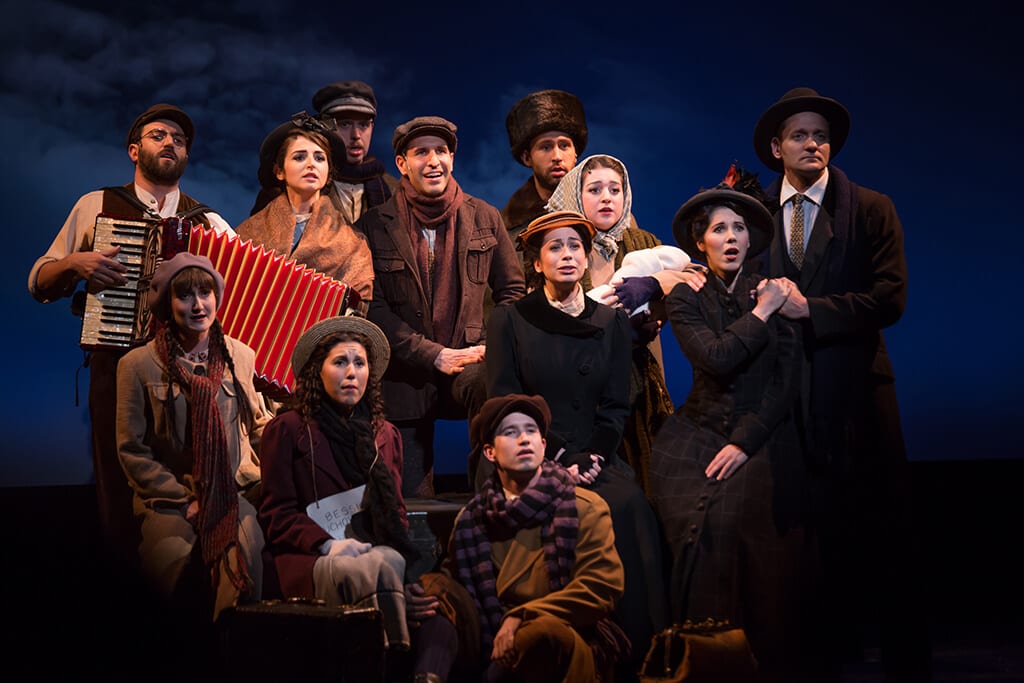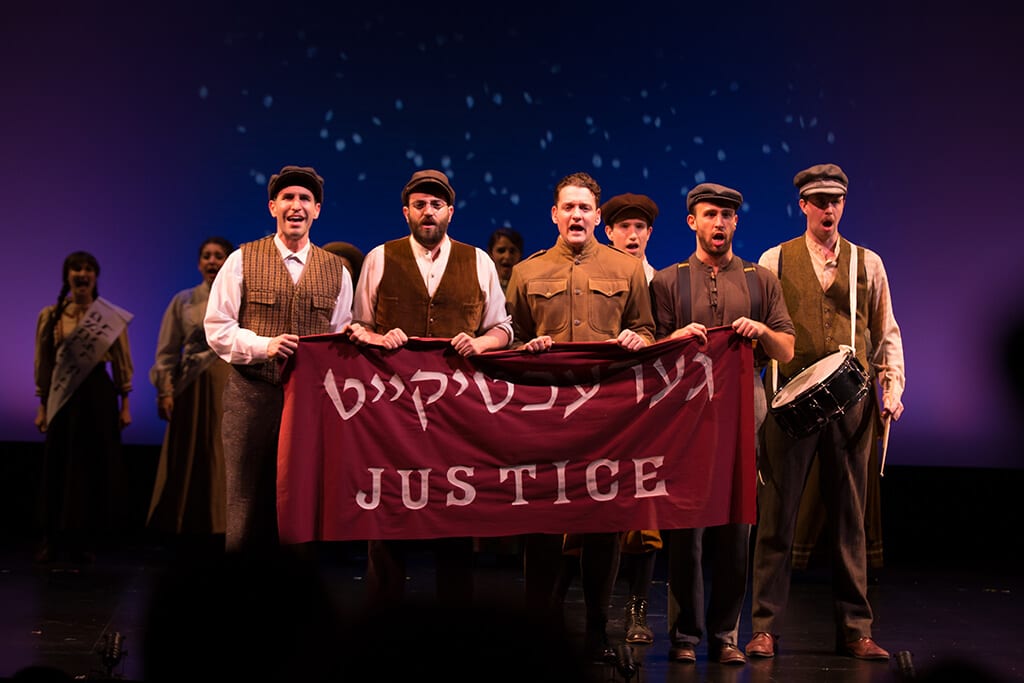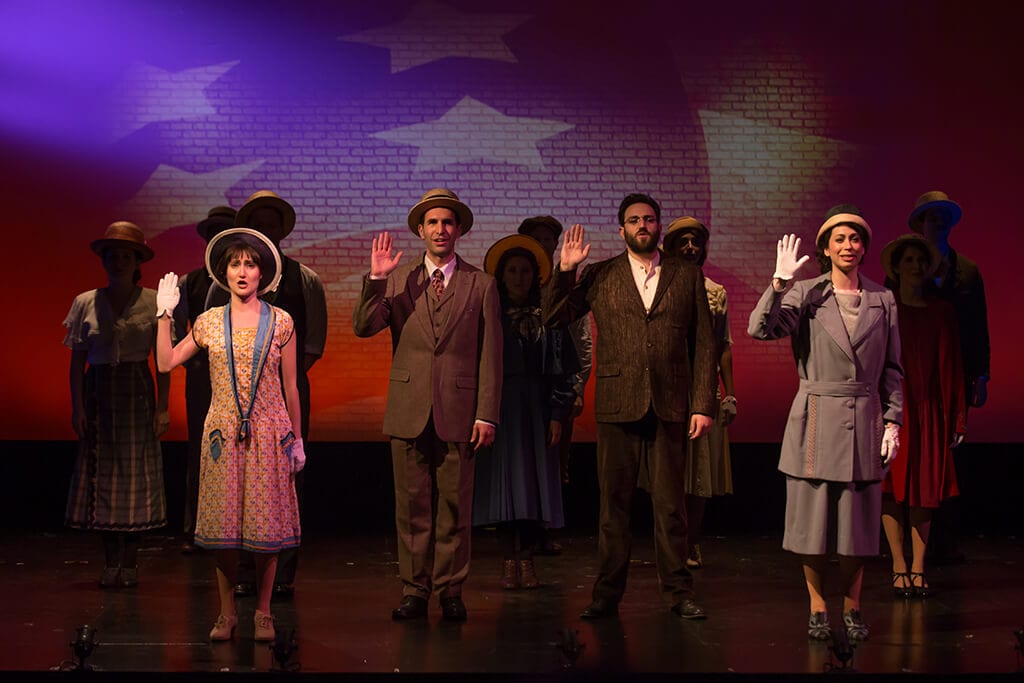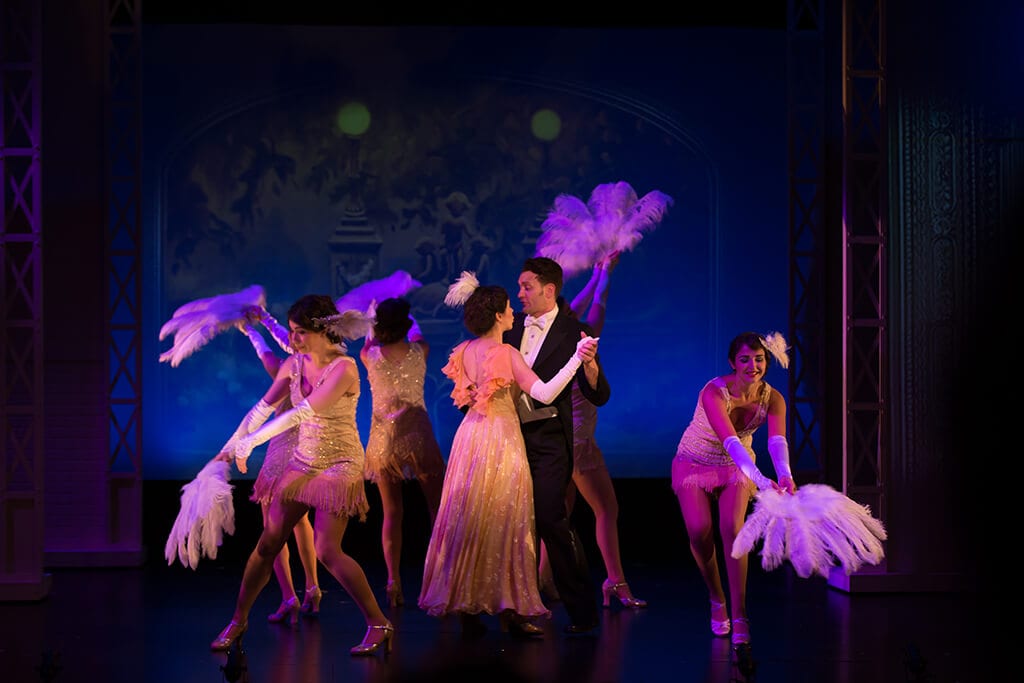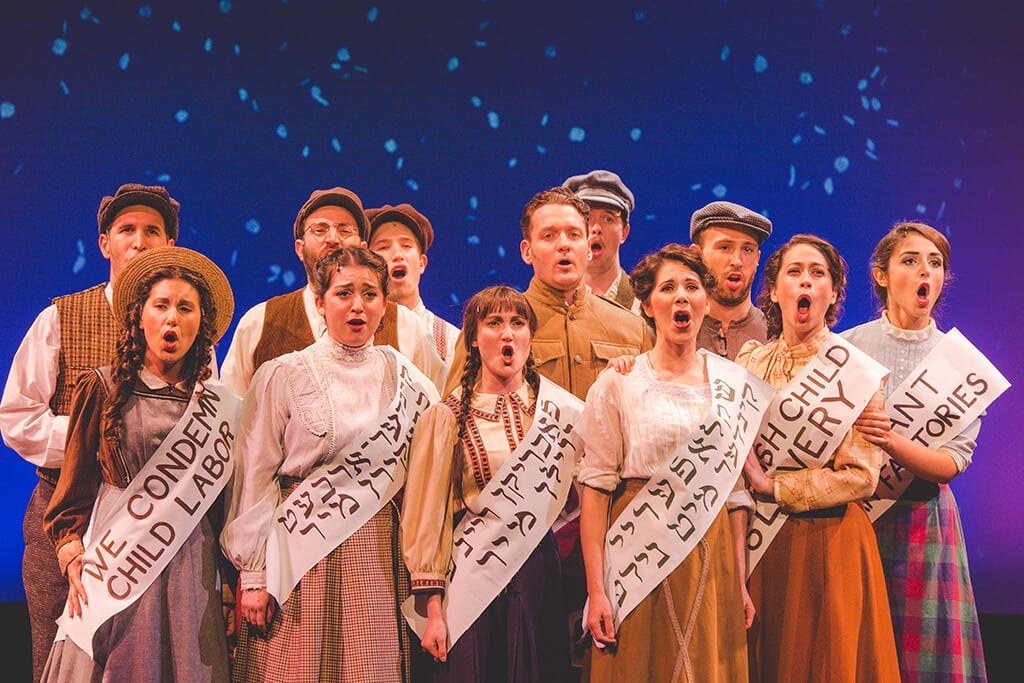Is it unprofessional for a reviewer to stand at the ovation, all wet eyes and grinning?
This Jewish immigration musical journey gives you much more than you bargained for. Yes, it takes us through leaving the old world, navigating Ellis Island, being a disoriented greenhorn on the bustling Lower East Side, toiling, moving on up to the “fancy-shmancy” Bronx, enduring calamities. But, wow, they execute the kishkes out of this show!
You get a punchy, soulful eight-piece orchestra, and a cast of fourteen including chorus. And, oy mammeleh, what can these people not do? Vaudeville routines, dramatic moments, period pop singing, arias, pitch perfect old radio commercial harmonies, dancing in full blown choreography–and all in Yiddish yet! All–not just the funny words. (Don’t worry–there are supertitles in English, and interestingly, in Russian. We heard a fair bit of Russian spoken in the audience.) You get a taste of Yiddish theater, including a spooky witch dance from Macbeth. And you’ll hear a “Roumania, Roumania” that will give you shpilkes.
Yiddish was the language of Eastern European Jews from the Middle Ages until the middle of the last century when it mostly gave way to the Holocaust, to the embrace of modern Hebrew in Israel, and to assimilation in the US. As a lived, spoken language, it is now primarily the province of Chasidim and the Ultra-Orthodox. But it preserves as if in amber the whole world of Eastern European Jewish life. For those like me who remember Yiddish-speaking grandparents now long gone, it’s jarring and so touching to see them as young people, not knowing their futures, hopeful, believing in America, finding and losing their way in the tumult of urban life. The Yiddish carries their upswinging, unresolved, ironic intonations and helps us feel how completely, as immigrants, they were living in two worlds.
The show indirectly serves a couple of causes in addition to generally telling the story of Eastern European Jewish immigration to the US. There is a strong labor rights bent, such as in the song “Fifty-Fifty” about how the wealthy should sweat and share equally with workers. The labor movement was very deeply woven into the experience of these people that went directly from Ellis Island to the sweatshops of the garment industry. And there is a general plea for the need to accept immigrants fleeing desperate situations, as they did. There is a little religiosity, very little, mostly a cultural reverence as in “Lekho Dodi” where we experience how universal Shabbos (Sabbath) observance was among these long laboring, thankful for the true blessing of rest. But the deepest reverence in this show is for the words of Emma Lazarus on the Statue of Liberty in the song “Give me your tired, your poor.”
Sure, it’s a pageant. It’s very earnest. People here seem nicer than in real life. These immigrants are not hardened or embittered, or neurotic or difficult in any way. They love each other, and they break into song regularly. But as the host demonstrates for us in her WEVD Yiddish Radio cooking show, a little shmaltz makes things transportingly delicious.
Stick around for the kickass Klezmer music at the end. It’s Yiddish without words.

